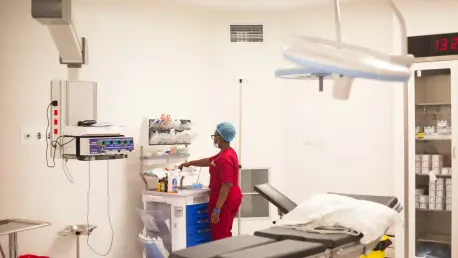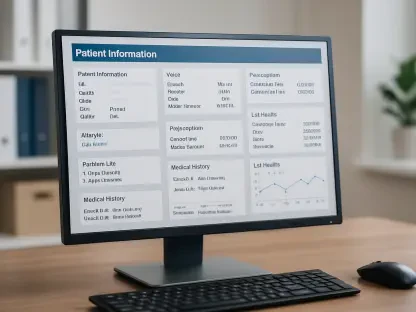Germany’s recent coalition agreement emphasizes transformative health care reforms, which occupy a substantial part of the 147-page document, underscoring the sector’s significance. The focus is on prevention, digitalization, quality of care, and enhancing Germany’s allure for health care investments. These reforms are crucial in a broader economic and societal context, aiming to solidify Germany’s standing as a global leader in health care innovation. Key themes in the agreement include bolstering the industrial health care sector, overhauling the German Pharmaceutical Market, restructuring hospitals for quality enhancement, and improving outpatient care. The agreement, reflective of dynamic health care policy advancements, presents an ambitious vision aimed at revolutionizing Germany’s medical landscape by marrying advanced technology with medical excellence. Planned measures cover diverse aspects, from fostering biotechnological advancements to invigorating local pharmacies and expanding telemedicine. With these comprehensive reforms, Germany seeks not only to enhance current health care delivery but also to set a precedent for modernized health systems worldwide.
Strengthening the Industrial Health Care Sector
A pivotal aspect of the German coalition’s reform strategy focuses on solidifying the industrial health care sector, emphasizing pharmaceuticals and medical technology as leading industries. The government aims to position Germany as a global innovation hub for chemistry, pharmaceuticals, and biotechnology by creating conducive conditions for developing and manufacturing medicinal products, active ingredients, and medical devices. A crucial component of this initiative is expanding the National Pharmaceutical Strategy, designed to enhance market access for innovative therapies and facilitate significant biotechnological progress. This ambitious approach is expected to attract investment into Germany’s health sector, making it more competitive globally. Investment in these areas mirrors the government’s commitment to integrating cutting-edge technologies into health care practices, thereby fostering an innovative ecosystem. The reforms aim to modernize and strengthen Germany’s position as a leader in health care innovation, unlocking new opportunities for industry growth and collaboration.
The strategic plan includes encouraging the relocation of production sites for essential medicinal products and medical devices back to Germany and Europe. This move aims to boost supply security, providing companies with incentives to adapt and enhance their production processes. The expected result is a more resilient supply chain, capable of meeting domestic and international demands more effectively. Furthermore, the initiative seeks to reinforce Germany’s autonomy in critical health care areas by minimizing dependency on external supply chains. In addition to strengthening industry infrastructure, these efforts are intended to revitalize local economies and create high-tech employment opportunities. By nurturing synergies between health care, technology, and industry, Germany’s coalition agreement sets a promising trajectory for sustainable industrial growth. These measures collectively aspire to elevate Germany’s status as a leader in health care technology and innovation, ensuring a robust and forward-looking health care system.
Revamping the German Pharmaceutical Market
The reform of the German pharmaceutical market is a cornerstone of the coalition’s agenda, with a strong emphasis on updating the German Pharmaceutical Market Reorganisation Act (AMNOG). This reform is designed to foster personalized medicine, a sector with significant untapped potential. The intent is to make the market more accessible and conducive to innovation, thereby providing firms with the tools necessary to push the boundaries of their creative capabilities. By revolutionizing how pharmaceutical innovations are brought to the market, the reforms aim to position Germany at the forefront of medical developments. Innovative companies poised to benefit from these reforms would gain a competitive edge in developing advanced therapeutics tailored to individual patient needs. The coalition’s vision of market liberalization underlines its commitment to enhancing the competitive landscape, paving the way for groundbreaking medical solutions. It reflects a progressive strategy aimed at securing Germany’s leadership in cutting-edge health care.
In addition to regulatory shifts, the initiative to bring production sites for essential medicinal products back to Germany emphasizes enhancing supply security amidst global challenges. Firms with the capability to swiftly modify production processes will find this advantageous under the new conditions, reducing vulnerability to global disruptions. The strategic focus on reshoring production underscores Germany’s dedication to safeguarding critical health supplies and reducing reliance on international suppliers. It will likely fortify the local pharmaceutical infrastructure, positioning it to better navigate future challenges. Coupled with the reforms discussed, these measures embody a comprehensive approach to modernizing Germany’s pharmaceutical industry. Collectively, these initiatives aim to establish a robust framework for innovation, strengthening Germany’s status as a prominent player in the global pharmaceutical market while ensuring sustainable supply dynamics and fostering a resilient healthcare system.
Hospital Restructuring for Quality Enhancement
The restructuring of hospitals forms a key part of Germany’s health care reforms, with a focus on quality enhancement through structured changes that address evolving needs. The government’s plans aim to build upon the need-responsive hospital landscape established previously, expecting completion in the ongoing period. This restructuring effort is pivotal in raising the standards of health services provided across Germany, placing emphasis on basic and emergency care, particularly in rural areas. New funding models, such as cross-sector flat rates per case (hybrid DRGs), are projected to improve efficiency, foster cooperation among care providers, and optimize resource utilization. Hospitals will be encouraged to revise their internal processes, boost collaborations with outpatient services, and consider updated remuneration frameworks, all aimed at enhancing care delivery and patient outcomes. This comprehensive structural reform seeks to bridge gaps in existing systems, promoting an integrated health care approach responsive to contemporary needs and challenges.
Aside from improving medical infrastructure and services, these restructuring efforts are expected to result in more robust health care provision by advancing the continuity of care from hospitals to outpatient settings. The new models aim to propel a seamless transition, ensuring that patients receive consistent, quality care at every stage of their treatment journey. Emphasis on rural and underserved areas reflects a commitment to equitable access, catering to the diverse health needs across different geographical regions. By prioritizing these areas, the reforms aim to address prevalent disparities and enhance the overall health care landscape. Additionally, by integrating hospitals with outpatient services, the structure aims at a holistic approach, considering all facets of patient needs. As these integrative strategies unfold, Germany anticipates achieving a health care system characterized by improved quality, accessibility, and effectiveness, marking a substantial leap forward in delivering comprehensive patient care nationwide.
Improving Outpatient Care and Relieving Burdens
Enhancing the outpatient care sector is another priority within the German coalition’s health care reforms. The agreement outlines comprehensive plans to revamp the primary care system and alleviate existing burdens on outpatient services. Among the proposed measures are initiatives aimed at decreasing workloads in doctors’ offices and reducing patient wait times, ultimately improving access to primary care services. The introduction of a mandatory primary doctor system, albeit with exceptions for specialized fields such as gynecology and ophthalmology, is anticipated to streamline primary health care delivery. This strategic reform seeks to ensure that patients have a dedicated primary care provider, facilitating better management of chronic conditions and overall health outcomes. The shift towards personalized solutions speaks to an era of patient-centered care, where strategies are tailored to individual health profiles and preferences. These measures reflect the coalition’s commitment to an outpatient system designed to promptly address patient needs, mitigate provider strain, and enhance overall health service efficiency.
Central to improving outpatient care is the introduction of personalized solutions specifically designed for patients with chronic illnesses. The proposal includes annual referrals and customized care plans, aiming to forge a more cohesive and effective approach to chronic disease management. By advancing patient-centered initiatives, such measures endeavor to not only improve health outcomes but also enhance patient satisfaction and engagement with the healthcare system. As part of these reforms, innovations in outpatient care hold the potential to bridge critical gaps in chronic disease management, promoting preventive care and early intervention measures. The anticipation is that with better management options, patients can maintain healthier lifestyles and reduce the need for acute care interventions. These advancements will likely translate into cost savings and reduced pressure on inpatient facilities, fostering a more proactive and preventative healthcare system. Collectively, these initiatives demonstrate a concerted effort to elevate outpatient care standards, delivering robust, efficient services reflective of modern healthcare demands and challenges.
Investor Transparency in Health Care Centers
Transparency in investor-operated health care centers is an integral aspect of the coalition agreement, addressing a critical area of governance and trust within Germany’s health system. The forthcoming iMVZ Regulation Act mandates transparency around ownership structures and the legitimacy of financing in investor-run medical facilities. This shift in focus represents a transition from debates over the permissibility of investor involvement in health care centers to prioritizing organizational transparency and accountability. By enforcing disclosure requirements and governance controls, the reforms aim to increase patient and public trust in these institutions. Such measures are essential for ensuring that investor-operated centers operate with integrity, addressing potential conflicts of interest, and fostering a culture of accountability. The enhanced transparency obligations are expected to build confidence among stakeholders, reassuring them of the centers’ commitment to ethical and efficient operations.
The iMVZ Regulation Act underscores the coalition’s determination to safeguard patients by promoting accountability while relaxing stringent restrictions on investor-established centers. By focusing on transparency and organizational issues, legislators hope to strike a balance between facilitating investment in health care centers and ensuring stringent oversight and integrity. These efforts reflect a broader vision of fortifying the governance of health care facilities, positioning them to provide adept and ethical services to patients. With clearer oversight and transparency, investor-operated centers could stand to benefit from a better perception among the public, positioning themselves as trusted entities within the health care landscape. In essence, these reforms aim to cultivate an environment where investors can contribute positively to the health care sector, provided they adhere to transparency and accountability standards, ultimately fostering a more open and efficiently run health care system.
Local Pharmacies as Primary Health Care Touchpoints
In the coalition’s vision for a more integrated health care system, local pharmacies play a pivotal role as primary healthcare touchpoints. These establishments, particularly in rural areas, are essential for delivering accessible and timely care. As part of the reforms, the coalition plans to reaffirm the prohibition on third-party pharmacy ownership, thereby safeguarding pharmacies’ independence and ensuring patient-focused services. Support for rural pharmacies through logistical and financial measures aims to enhance their viability and ability to serve as dependable community healthcare providers. By strengthening their role, the coalition seeks to make local pharmacies more equipped to handle preventive care and health management, reducing patients’ need to visit distant medical facilities. This strategy not only cements pharmacies’ place in the healthcare continuum but actively contributes to community health resilience and accessibility.
Furthermore, the coalition proposes abolishing the discount ban while expanding preventive service structures to address bureaucratic hurdles and standardize requirements for both local and mail-order pharmacies. The intent is to streamline processes and ensure that essential pharmaceuticals and health care supplies are readily available to patients regardless of their location. By facilitating competitive and polished service offerings, these measures aim to enhance the partnership between pharmacies and the broader health care system. With pharmacies better integrated into the health care infrastructure, patients can benefit from personalized care services tailored to their specific needs, leading to improved health outcomes. By focusing on pharmacies as vital components of the health care landscape, the coalition sets the stage for a system where community needs are met efficiently and effectively, underscoring the importance of accessibility and quality in health service delivery.
Digitalization and Telemedicine Expansion
Digitalization and telemedicine stand out as transformative elements in Germany’s healthcare reform strategy. Recognizing the vital role of technology in modernizing health delivery systems, the coalition plans to reduce barriers and broaden opportunities in these areas. Planned legislation is expected to alleviate bureaucratic burdens, especially by minimizing documentation requirements. The goal is to create a seamless flow of health information, promoting efficiency and fostering innovation within the healthcare sector. Enhanced data exchange is projected to significantly improve healthcare delivery, including preventive health promotion, setting a new standard for patient care and provider collaboration.
Central to digitalization efforts are plans to expand electronic patient records along with telemedicine options such as video consultations, telemonitoring, and telepharmacy. These advancements are vital for developing a cohesive digital health environment, potentially revolutionizing patient-provider interactions. While these expansions present exciting prospects for business growth, some existing models may encounter constraints, particularly regarding the issuance of incapacity certificates via private online platforms. Nevertheless, enhanced electronic health provisions stand to improve care accessibility, especially in remote areas, by enabling timely and personalized consultations. The digitalization of healthcare services reflects the coalition’s commitment to integrating innovative solutions that enhance patient experience and streamline care delivery. Ultimately, these advancements pave the way for a responsive and sustainable healthcare ecosystem in Germany, facilitating more informed decision-making and fostering improved health outcomes across the board.
Potential Economic Impact of Cannabis Law Reform
The potential economic impacts of cannabis law reform have been closely examined by the coalition, recognizing the considerable prospects in this realm. A recent evaluation sought to assess the reform’s efficacy, with an eye on leveraging the insights gained to maximize economic opportunities. This strategic engagement is poised to catalyze an emerging industry segment, potentially creating avenues for growth and innovation. If managed prudently, reform outcomes could translate into new business ventures, enhanced tax revenues, and domestic job creation. Furthermore, aligning cannabis policy with health sector objectives may foster medical research, underpinning the infusion of innovative treatments within the health care framework. As the coalition gauges the reform’s broad implications, it anticipates reciprocal benefits that streamline economic outcomes while aligning with public health objectives. Should the economic insights prove favorable, the resulting policy adjustments would likely redefine the landscape, heralding the development of supportive industry ecosystems responsive to innovative health care trends.
In contemplating future economic opportunities, the reform considers cross-industry synergies and collaborative ventures likely to support local economic revitalization. By nurturing an environment conducive to innovation, the coalition endeavors to interweave public health, industry growth, and law enforcement within a unified reform strategy. Emphasis on prudential oversight ensures sustainable advancement alongside economic stimuli, addressing regulatory, social, and health considerations concurrently. As the landscape evolves, this reform could lay the groundwork for advances in medicinal usage, complementing broader health policies with equitable economic distribution. By harmonizing reform strategies and economic objectives, the coalition reinforces its vision of an adaptive healthcare sector that thrives alongside evolving societal needs. This holistic, forward-looking approach equips Germany to harness transformative potential across diverse health policy dimensions while remaining attuned to broader socioeconomic impacts.
Crisis Management in Health Care
Germany’s latest coalition agreement spotlights transformative health care reforms, marking their importance in the 147-page document. These reforms focus on prevention, digitalization, and quality of care, aiming to make Germany more attractive for health care investments. The overarching goal is to affirm Germany’s role as a leader in health care innovation globally. Central to these reforms are strengthening the industrial health care sector, revamping the German Pharmaceutical Market, restructuring hospitals to enhance quality, and improving outpatient care. The agreement reveals progressive health care policy changes, setting a bold vision to revolutionize Germany’s medical scene by blending advanced technology with medical excellence. These planned initiatives cover diverse areas, from promoting biotechnological advancements to bolstering local pharmacies and expanding telemedicine services. Through these comprehensive changes, Germany not only aims to improve current health care delivery but also aspires to set a global benchmark for modernized health systems.









